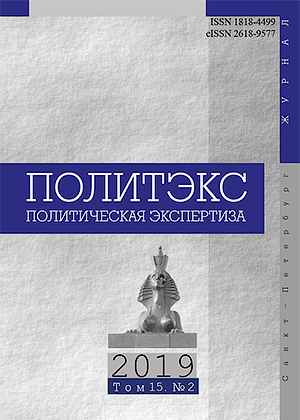Three narratives of political science: perspectives of interdisciplinary political studies
DOI:
https://doi.org/10.21638/11701/spbu23.2019.202Abstract
Modern political science faces significant challenges in methodology, positioning, and disciplinary reproduction. Virtually all of these challenges (both internalist and externalist) are due to the reduction of the methodology of political science to the positivist paradigm. Examples of concepts of political culture, democratic transit, hybrid regimes, post-secularity, political will are a demonstration of the positivist paradigm weaknesses. The positivist methodological orientation dominance gives such the cost in political science as both in the reduction of the scientific explanation to the evaluative categorization and in the elimination from the subject of consideration of the actual political subject and his will. Answers to these challenges suggest systematization of the interdisciplinary narrative of political knowledge. It is necessary to expand the methodological horizon of the analysis of political reality. Such expansion is possible on the interdisciplinary approach basis, which is specified in this work as fixing and disclosing the poly-narrative content of political knowledge. The dynamics of political reality is revealed through the procedure (algorithm, technology) of the generation of a phenomenon or concept with the help of narratives, the corresponding formulation of factology, theoretical constructs and the goals of political reality analysis. In turn, the history of the generation procedure, taking into account the social forces game reveal the individual nature of political phenomena. In this regard, it becomes clear that the key role for modern political science is precisely the validity of the goals pursued, problem orientation, i. e. “expediency” of the planned or carried out the activity. The criterion of science is not in the methods, but in solving the problem, which is guaranteed by the adequacy of the methods used. The proposed approach opens up new possibilities for analyzing and explaining the political processes dynamics, the role of specific political forces, socio-cultural and personal factors in them.
Keywords:
constructivism, interdisciplinarity, narratives, positivism, political science
Downloads
References
References
Downloads
Published
How to Cite
Issue
Section
License
Articles of "Political Expertise: POLITEX" are open access distributed under the terms of the License Agreement with Saint Petersburg State University, which permits to the authors unrestricted distribution and self-archiving free of charge.




